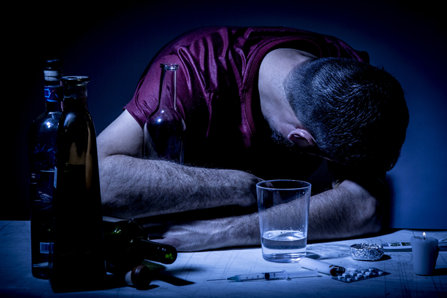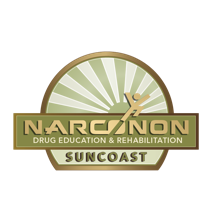What is the RIGHT Help?

The two most well-known ways to deal with a drug or alcohol addiction are ones that almost everyone has heard of. The first of which is when someone instills a fear of drugs and alcohol into a person, normally children and pre-teens. Programs come to schools and teach about the dangers of using drugs and alcohol. Kids have heard or hear horrifying stories from parents of children who died in drunk driving accidents or who fell into the wrong crowd and overdosed in the basement of a stranger’s house. As a young kid, clearly the only option is to never touch alcohol or drugs because if you do, you will absolutely die. But then that kid grows up. Peer pressure and a lack of social skills erases those horror stories and he starts to try new things. Even though the intentions behind this tactic are good and wholesome, it is not the most effective when some young teenager is smoking cigarettes behind the movie theater or a freshman in college is binge-drinking at parties to make new friends.
A few years down the road, he’s still partying and drinking with his friends, smoking cigarettes and marijuana on the weekends, really it’s no big deal, right? He also witnesses that not everyone dies, in fact the kids he knows seem to be having a great time, partying and getting high. Sure, he knows that it can be dangerous, but he also knows that the dangers are grossly exaggerated by the “authorities”. Also, the truth be known, the danger is part of the attraction, the illegality, being an “outlaw”, all these things add to the mystique of drug usage. A few more years down the road, he wakes up and all he can think about is the party later that night, when he gets to crack open that beer or get high and unwind from the day. Still not a huge deal, he is just having fun and relieving a little bit of stress. Then suddenly a little way down the road he has a problem. He can’t get through the day without a small or large amount of whatever his substance of choice is. He doesn’t know what to do, his family and friends are starting to worry and he starts to think he may have an issue.
Now that he has thrown every fear he developed for drugs out of the window on his way to trying to become a functioning adult, he seeks the next most popular way to handle a drug or alcohol addiction; which is anonymously. Narcotics and Alcoholics Anonymous, while very well-known, are just what the name implies, anonymous. He doesn’t have to use his real name, no one needs to know he is there or struggling with addiction except the other people in his group and his NA or AA sponsor.
However, just because something is popular doesn’t mean it’s the best thing out there. Narcotics and Alcoholics Anonymous follow a 12 step program. This means that if he applies these steps in every aspect of his life he will be able to keep his addiction at bay, “one day at a time.” He goes to meetings and sits in a circle while the person in charge of the meeting tells him that “addiction is a disease” and “once an addict always and addict”. The 12 step program firmly believes that he will struggle with addiction for his entire life, but there is a way to beat it, as long as he turns himself over to God. He will take care of him and handle his addiction if he just has faith.
There is absolutely nothing wrong with him having religious views or putting his faith in God and for some people out there, 12 step programs work really well and they win over their addiction and are able to attend daily, weekly or monthly meetings and go about their regular life. Unfortunately, this is not the case for everyone. When he enrolls himself into a 12 step program, all of the responsibility is placed on the disease and not his choices or behaviors because he can’t help it, he has a “disease.” He makes himself go to those weekly meetings, he walks himself through those steps and he does everything he can to combat the cravings and the withdrawals.
But what does he do when it becomes too much? Maybe the day that happens is the day of a meeting and he can go there and talk about his struggles and the other members there will share similar stories and he can make it another day, or if there is no meeting, he has the option of calling his sponsor who is also a recovering addict or alcoholic. He tells his sponsor what is happening and they do their best to get his mind off of it. But what happens when neither of those things work and the cravings are so intense he feels like he honestly might die if he doesn’t use?

He relapses. The days, months, or years of sobriety he had under his belt are all gone and he has to start over and try again. This happens so often that the phrase “relapse is part of recovery” is commonly heard in these circles.
So, after a few years of being told he will always be this way coupled with relapse after relapse, his family and friends are getting tired. They don’t want to hear his excuses or what his sponsor said. They want him to get clean or get out.
He does his best to appease them by looking into alternative treatment programs. Then he stumbles onto a webpage or an advertisement for a place that he has never heard of. It says it’s a drug and alcohol rehabilitation center and that it is not a 12 step or a faith based program. He mentions the name to his family and they call in to get more information on how the program works. With a success rate towering over that of any 12 step program, it could be the perfect place to go.
Narconon is not going to tell him that he has a disease and that he’s going to be an addict for the rest of his life. The Narconon program is based on the fact that people use drugs or alcohol to solve a problem, or problems, and uses unique methods to successfully relieve him of the emotional aspect of addiction. Once he is no longer driven by the physical and mental dependence on the substance, he addresses his life and solves the problem that drugs were the solution for. As he doesn’t crave drugs or alcohol and no longer uses them to avoid or dull the problem(s) of his life, then he no longer needs drugs or alcohol to make it through life.
Narconon refers to him as a student instead of a “patient,” because he is there to learn how to take control of his life.
The Narconon program has several phases to get him back to who he used to be before drugs. These steps use what is known about the human body and mind to handle an addiction on both a physical and mental/emotional level. While it can be a difficult process, if he works hard and has the real desire to stop using, this program works.
Drug addiction is not something that he can wish away, it is a physical, mental and emotional issue that, with the right approach, he can rid himself of for good. There are countless people who have gotten their families, loved ones and lives back thanks to this program. It is based on the science of human anatomy and the mind and it was built with the intention of turning addicts back into themselves and not referring to those who have completed the program as “recovering” for the rest of their lives.
No matter what type of treatment a person decides on, remember that not every program works for every addict. It is important that a treatment center take an individualized approach in treating drug addicts and realize that they are all separate individuals who require specialized attention and not a “one size fits all” approach to recovery. It is important to choose a treatment center that handles not only the physical addiction to drugs but really digs into the real “meat and potatoes” of a person’s issues. A lot of focus needs to be put on the mental and emotional aspect in order to find out the real reasons a person turned to drugs in the first place as a solution to their problems. While looking for treatment it’s very important that a person does not give up or lose hope. Help is out there; the challenge is in finding the right help.
